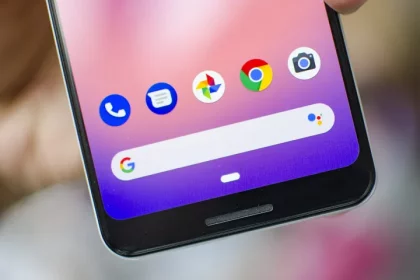Introduction:
WhatsApp and RCS are reshaping the way telecom providers interact with their customers. The growing demand for rich, real-time communication has fueled interest in these two messaging platforms. Messangi offers robust solutions to help telecoms leverage WhatsApp and RCS for more personalized customer engagement. Let’s explore how these technologies are becoming essential tools in the telecom industry.

Key Takeaways:
- WhatsApp and RCS provide powerful messaging capabilities that telecoms can use to improve customer communication.
- WhatsApp offers massive global reach and business features for verified customer interaction.
- RCS gives telecoms control over native messaging apps with enhanced features.
- A hybrid strategy using both platforms helps maximize reach and long-term growth.
Driving Innovation in Telecom Messaging
WhatsApp: The Global Messaging Giant
WhatsApp has become the go-to messaging app for billions, offering end-to-end encryption and feature-rich communication. For telecoms, it presents a unique chance to meet customers where they already spend their time. With WhatsApp Business API, telcos can send alerts, deliver support, and conduct marketing campaigns with verified sender identity. This enables businesses to engage audiences across regions without building new customer habits.
The appeal of WhatsApp lies not only in its reach but also in the user trust it has built over the years. Customers are more likely to respond to messages on a familiar platform, especially when the sender is verified. Telecoms can use this to their advantage to provide time-sensitive updates, resolve queries instantly, and boost loyalty. The platform’s ease of use also means less friction in customer journeys.
Another benefit is automation. With the use of bots and APIs, telecoms can automate common tasks like billing queries, service activations, and FAQs. This leads to faster resolutions and reduced operational costs. And because WhatsApp works across operating systems, it offers consistent messaging experiences on both Android and iOS.
From personalized promotions to proactive customer service, WhatsApp enables telcos to provide contextual, human-like interactions at scale. It’s not just about broadcasting information—it’s about creating conversations. Every interaction through WhatsApp becomes an opportunity to reinforce brand loyalty. And with features like location sharing and media support, engagement becomes more dynamic and effective.

RCS: Redefining Native Messaging for Telecoms
Unlike third-party apps, RCS is deeply integrated into Android devices and supported by carriers. It offers features like high-res media sharing, typing indicators, and interactive business messaging, all from the native messaging app. With RCS, telecom providers reclaim control of customer messaging and deliver rich experiences directly on the device. That’s a big step forward compared to the static nature of SMS and MMS.
RCS allows telecoms to brand the messaging experience, giving a more polished, trustworthy look to their communication. That includes company logos, brand colors, and verified sender information built right into the message thread. This branding opportunity is particularly powerful for reinforcing trust and professionalism.
The technology also enables more advanced interactions than SMS. Buttons for quick replies, suggested actions, and carousels of content make messages more engaging and interactive. Instead of reading a plain-text reminder, customers can confirm appointments or make payments with a single tap. And because RCS uses mobile data or Wi-Fi, messages can include much richer content without worrying about character limits or file sizes.
RCS gives telecoms a channel they can call their own, operating independently from third-party ecosystems. It also offers better data privacy controls for operators, which can be a critical factor in regulated markets. With growing user adoption and global rollout efforts led by Google and major carriers, RCS is gaining traction as a standard messaging experience. And it’s opening the door for AI-powered services that can run entirely within the chat environment.

Creating a Winning Communication Strategy
Why Telecoms Shouldn’t Choose One Over the Other
Some providers see WhatsApp and RCS as competing technologies, but they’re actually complementary. WhatsApp gives you immediate access to a massive user base, while RCS builds your long-term infrastructure. It’s like having both a sports car for quick sprints and a truck for long hauls. By combining them, telecoms can tailor communication strategies to specific use cases, audiences, and regions.
This dual strategy supports omnichannel engagement, allowing telecoms to use the most effective channel for each customer. For example, a user in Latin America might prefer WhatsApp, while a user with an Android phone in Europe may benefit more from RCS. Messangi’s platform enables intelligent routing to deliver the right message via the right channel, every time. This increases the chances of message delivery and boosts customer satisfaction.
Use Cases that Drive Results
- Customer Support: Use WhatsApp to provide instant support with verified accounts and bots.
- Service Notifications: Use RCS to send interactive reminders, confirmations, or outage alerts.
- Marketing Campaigns: Both platforms engage customers based on their device and messaging preference.
- Onboarding: Send guided onboarding messages using interactive features of RCS or WhatsApp flows.
Telecoms can also use these platforms for upselling and cross-selling. Sending personalized offers via RCS or WhatsApp can lead to better conversion rates compared to email or SMS. Plus, real-time delivery receipts and engagement tracking let marketers adjust campaigns on the fly. These are not just tools for communication—they’re performance-driven channels.
The future will likely see even deeper integrations with other digital services. Think of connecting mobile messaging to loyalty programs, content portals, or even payment gateways. By weaving RCS and WhatsApp into the digital fabric of telecom services, companies can drive measurable business outcomes. And customers benefit from frictionless, personalized interactions that feel more like conversations and less like transactions.
RCS + WhatsApp = Maximum Impact
The power of combining WhatsApp and RCS lies in covering every touchpoint. WhatsApp excels in peer-to-peer communication, while RCS shines in native messaging and interactivity. Together, they help telecoms improve response times, reduce support costs, and increase engagement. Messangi helps orchestrate this ecosystem with solutions that effortlessly bridge these platforms.
By offering a unified messaging framework, Messangi simplifies integration and management. Telecom providers can focus on crafting meaningful conversations rather than juggling technical complexity. Whether it’s integrating CRM systems or running dynamic campaigns, Messangi’s tools streamline the process from start to finish. And with analytics built in, providers can measure results and optimize their messaging in real-time.
With the rise of conversational commerce and chat-based service models, having strong messaging infrastructure is no longer optional. It’s a must-have for telecoms looking to stand out in a saturated market. By embracing both RCS and WhatsApp, supported by Messangi’s platform, telecoms can lead—not just participate in—the next generation of mobile customer engagement.
Frequently Asked Questions
What’s the difference between WhatsApp and RCS for telecom providers?
WhatsApp is a third-party app with global user reach, while RCS is a carrier-led protocol integrated into native Android messaging apps.
Can telecoms use both WhatsApp and RCS at the same time?
Combining both allows telecoms to target different customer segments and use cases more effectively.
Is RCS supported on all devices?
RCS is supported on most modern Android devices but not on iOS.
How can telecoms use WhatsApp for business messaging?
By integrating with the WhatsApp Business API, telecoms can deliver customer support, alerts, and campaigns via verified accounts.
Does Messangi support both WhatsApp and RCS solutions?
Yes, Messangi provides a unified platform for telecoms to implement, manage, and scale communications across WhatsApp, RCS, and other channels.
Conclusion
WhatsApp and RCS offer telecom providers two powerful tools to improve communication and customer engagement. By combining the reach of WhatsApp with the native integration of RCS, telecoms can stay ahead in a competitive messaging landscape. With Messangi’s flexible solutions, embracing both technologies becomes seamless and strategic for long-term growth.
Messangi empowers telecoms to future-proof their messaging strategies. Whether you aim to increase efficiency, deepen customer relationships, or boost marketing ROI, leveraging WhatsApp and RCS together is a smart investment.




